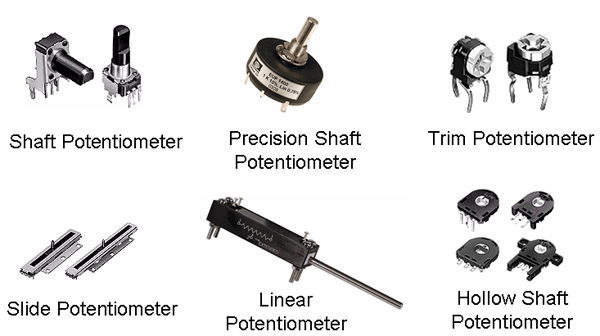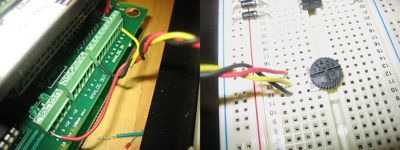Potentiometers
A potentiometer is a manually-adjustable, variable resistor of the type that is commonly used for volume and tone controls in stereo equipment. Potentiometers are variable resistors. They have three terminals with the center terminal being a center tap contact that slides across an element of constant resistance.
Different Types of POTs
Applications
A rotary potentiometer can be used to measure the rotation of a shaft. It is easiest to use if the shaft being measured does not need to rotate continuously, but rather would rotate back and forth (as in a sensor "radar dish"). Use of gears is a simple way to lock the rotation of the shaft being measured to the potentiometer. By using a gear ratio other than 1:1, a shaft that needed to rotate more than the 270 degrees or so of the pot could be measured.
Connecting the potentiometer to the PC/104 Stack
Use the circuit below to connect a potentiometer to the PC/104 stack. You can supply the potentiometer with any supply voltage, but remember that the PC/104 analog INs can only handle +/- 10V. The PC/104 won't read the exact voltage/resistance directly, because there is a 1k resistor in between the terminal and ADC (see PC104 I/O). In correct this, you can use a large resistance POT (if you have that freedom) or you can correct the error in software.
File:PPOT to PC104 Circuit.png POT Circuit Diagram |



